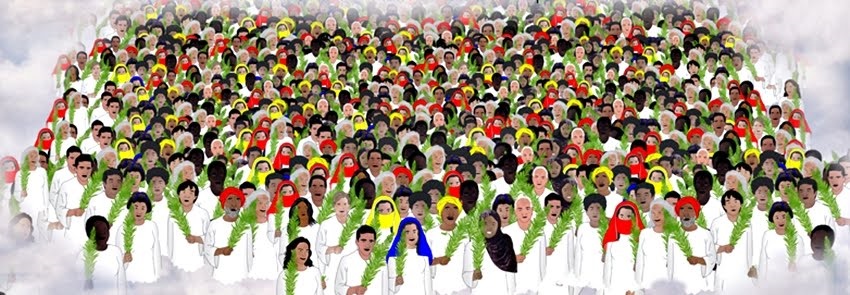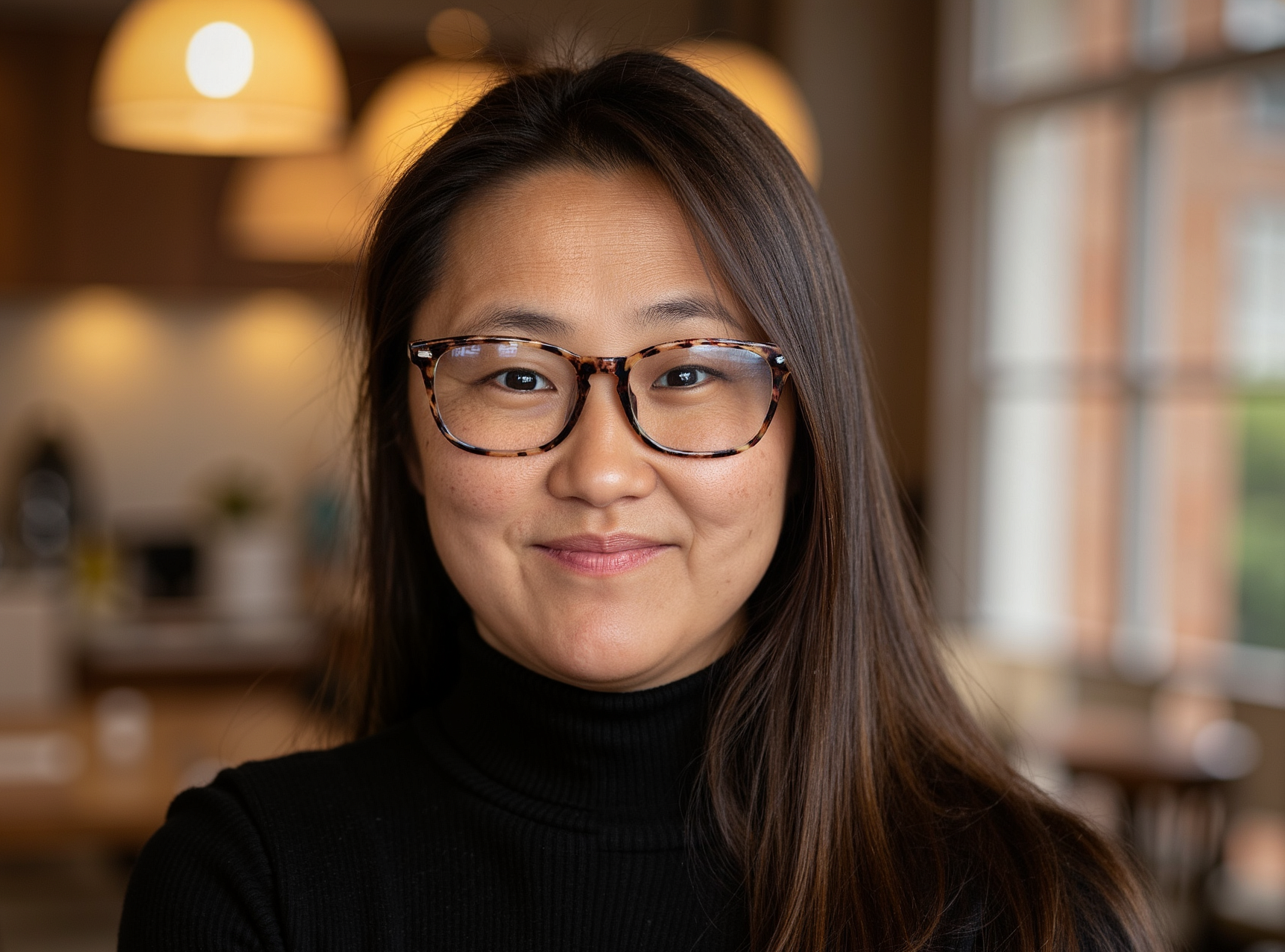I speak to this issue out of fear. I earned a degree with the goal of serving the church, specifically the Christian Reformed Church. If I am ever blessed to have the opportunity to serve in a higher office within the denomination, this conversation will come back to haunt me. Should we decide today to go with a quota system where we say a certain number of our leadership positions need to be filled by people of color, I fear that if I ever gain a position of leadership in this denomination I will ask myself if I am indeed worthy of the job and the best candidate for the position, or if I was hired because of the color of my skin. I would like to know that I earned the position. I would like to know that I am not the diversity ticket checking the box. I speak against the motion.

I still see that microphone. I see the officers sitting at the front table in Calvin College’s old field house. I see the chair and reporter at the mic as they presented the motion on behalf of the advisory committee dealing with the lack of diversity within the denomination. That was my first Synod — and it indeed still haunts me.
****
On January 29, 2025 a small plane and helicopter went down into the Potomac River, 16 miles from my house. The horror of seeing the familiar flight path — one I was in fact supposed to be on 4 days later — made for a sobering evening, in an already devastatingly heavy month.
The very next morning, the administration appeared on air and instead of offering the token “thoughts and prayers,” the blame was placed on diversity initiatives which failed to put the best and most competent people in important positions. “Brilliant people have to be in those positions.”
Since then, our news cycles have been filled with headline after headline about the internal civil war in our country over DEI initiatives. Whether it’s a university fighting to preserve the ability to hire as they feel led, religious institutions claiming exemptions, or Fortune 500 companies actively resisting the mandates, the crossfire is frantic from all sides. Not a day passes without at least a mention of it in our feeds. But. Who is standing in the middle ducking for cover or pulling contortionist acts to avoid the rhetorical ammunition? Us.

I am a Korean adoptee — born in Seoul and adopted into a Dutch Christian Reformed family in Denver, Colorado at six months old. With 100% Korean blood, I was raised surrounded by generations of Dutch heritage, represented in my church, school, community, secondary education, and career.
I can name countless moments — both micro aggressions that slice like papercuts, and macro aggressions that cut to kill — that have reminded me of my race. Being introduced to others as “adopted,” being spoken to slowly with syllables being drawn out as though drunk on ignorant, words yelled out a car window while I was simply out for my morning run, assumptions that my own children must be adopted to have such light skin.
Yet, culturally I was raised Dutch Reformed. I grew up seeing very few people of color, often forgetting my own race until I looked in the mirror. I speak the Reformed language fluently — no accent or trace of being a foreigner. I bear the complex mismatch of my physical appearance and cultural upbringing; an ill-fitting garment of identity that never quite fits properly anywhere.
And I’ve come to the realization that this particular garment has afforded me a very unique position in the swirling DEI conversations. For better or worse, I can straddle the line, see the argument from both sides. I see, nay, I feel both the cause and the effect. I raise my fits and shout my battle cries against the injustices taking place, while at the very same time huddling for protection of my very personhood.
Here’s the cold, hard truth. Without DEI measures in place — without intentional care to reverse generations worth of hiring practices that excluded people of color, women, those with disabilities, the LGBTQ+ community and more — people like me might never have the opportunity to hear the words “welcome to the team.” The steady bleed of exclusivity isn’t fixed with a patchwork band aid job.
But here’s another cold, and maybe harder truth. Our efforts in this space have already failed us. When a person’s humanity is treated as a quota or a way of “rounding out the team,” the effort to raise them up is quickly met with all that threatens to push them back down. It’s not just about the headlines we read, but about what they mean on a personal level for those they represent. What they hear in the midst of all the noise.
- DEI hire.
- It’s up to you to represent all of us well.
- Prove yourself.
- You need the law to be equal.
***

Fast forward 16 years from that Synod floor debate. I did have the honor of serving the denomination in a leadership capacity until very recently. Those years were filled with tremendous highs and unbearably deep lows. That’s a story for another day. But that microphone moment resonates in the here and now with a message for us today.
Don’t quell your protests. They are needed and must be heard. Fight for diversity. Champion equity and inclusion with your Revelation 7 defiance in hand. But that cannot be it. Don’t just fight for the cause. Work for, pray for; and most importantly, allow yourself to be changed deeply by a holistic vision where DEI is simply a way of being in this world and existing with one another. Not a political weapon, not yet another reason to blame those with whom you disagree. Instead, something that shapes every interaction, guides every conversation, and opens your heart to do the work necessary so that all might belong in body and soul, in life and in death not only to their faithful Savior, Jesus Christ, but also to one another.
Header photo by Miles Peacock on Unsplash


21 Responses
Thank you for this. Powerful. I am called to self-examination.
All of this so good. Thank you for bringing your depth of experience to bear on the madness of the political landscape.
Thanks for your brave voice, Katie. We are blessed to learn from you. May all of us remember. God bless you.
Thank you or an important personal insight regarding DEI during these challenging times.
I hate to break this to you, but in today’s (crumbling) woke culture, you simply don’t score positive Intersectionality Points:
1. You’re a female (+1 point)
2. You’re Asian (-1 or -2 points)
3. You’re Christian. But if you keep that to yourself or publicly criticize conservative Christians, you’ll be fine (0 points)
Not so good. Sure, you’re better than white males, but that’s not saying much. The DEI crowd you want to run with would try to keep you out of the Ivy League.
How about we see each other as Imagebearers? Maybe treat people with Grace? Celebrate excellence? And be generous?
What a cruel response!
Yes, Jack. Thank you for saying so. My world has been enriched by so many people, several from different ethnic backgrounds, and some from the LGBTQ+ community, but I don’t keep score.
Neither do I. But, if you aren’t aware, that’s all the DEI crowd does. Keep score, because, at the end of the day, it’s all about power.
Jack,
Thank you for naming that response for what it is.
Katie,
Thank you for bravely speaking out and graciously challenging us to see each other as all belonging together in body and soul to Jesus Christ–even when we resort to cruel comments.
The fact that my comments are seen as cruel shows just how clueless many of you are to the perfidious nature of the ideology behind DEI, intersectionality, and other Marxist-derived worldviews. It also shows you to have an astonishing lack of discernment.
Please re-read the last three questions I asked in my above post. That’s the worldview I try to follow. And it’s certainly not cruel.
Explain to the rest of us who you say “have an astonishing lack of discernment” how you are “treat(ing) people with Grace”, “celebrat(ing) excellence” or “be(ing) generous.” I don’t discern that in any of your above comments.
Do you even know Katie? Do you have any idea of the excellence she has brought to the CRC through her gifts over the past years?
I’m curious, how many points for being a straight, white, conservative male? If all people would adhere to your last paragraph, every movie title would be “It’s A Wonderful White Male World.” Impossible.
Sorry, I meant to say your second to last paragraph. And I’ll add “Straight, Conservative” to the movie title.
Marty, I tried my best to ignore your comment after I read it this morning, but it irritates like a rock in my shoe, particularly the last paragraph. My question is what does this mean in our lives and our society, particularly in this context. I am reminded of James 2:17: In the same way, faith by itself, if it is not accompanied by action, is dead. So, how does forbidding women to hold ecclesiastical office treat them with grace? I worked for years with homosexual and lesbian people living in stable, loving relationships; am I treating them with love and grace when I tell them my church says they are living in sin and need to be removed from our fellowships? In a broader societal context, I see my science colleagues being terminated by DOGE with no consideration of excellence at all (or any policy rationale). My colleagues and I are routinely trashed by members of this administration, starting with the Mr. Trump, with no regard for our scientific expertise or contributions. I don’t see any protests over this treatment from anyone in the church. I watched DOD remove multiple high-ranking women from their positions, apparently because they are women. Is this generous and celebrating excellence?
DEI efforts are primarily meant to try to deal with systemic issues, the kind of issues that Katie laid out so clearly. Your last paragraph misses that point completely, maybe deliberately, maybe not. It is similar to “the thoughts and prayers” routinely offered by politicians to the victims of mass shootings, while those same politicians stand in the way of doing something about the problem. Faith without works is dead. Appealing to grace and image bearing is dead in the absence of being willing to treat the effects of systemic racism, poverty, and gender oppression in our society.
Tom,
With all due respect, you would be better off ignoring my comments.
Thank you for having the courage to tell your story, and to tell it truthfully. Your “ill fitting garment of identity” must be hard on you, but it is a gift for those of us who are from the majority culture (whether that is White Americans or Dutch American CRC members). It forces us to confront our biases and prejudices. You are indeed a blessing and a gift to the Christian Reformed Church.
Yes, indeed, you are a blessing and a gift to all you meet and work with! I count myself in the group of those who have learned from you and worshiped with you. I appreciate this honesty today. And I know I need to keep working on what I don’t know – especially those ‘micro aggressions that “slice like paper cuts”. (you describe things so well!). If we think we are doing well at this, we’re probably not.
Katie: Yes!
I appreciate your painful honesty, Katie. I wish I had been aware of this through the Korean students I taught or mentored, and through the young lady who became our Korean “daughter.” Thanks for enlarging our needed awareness.
Katie, your honesty, humor, creativity, faithfulness, and care have blessed our little congregation. Proud of you!
Katie, Thanks for your authentic, wise, and challenging article. DEI initiatives may address some institutional inequities, but they do not change people’s hearts or minds. Personal relationships, seeking after God’s kingdom, and the mind of Christ are needed. Your voice calls me to attend to these. Your words give grace and truth from your personal experience. O God, your kingdom come.